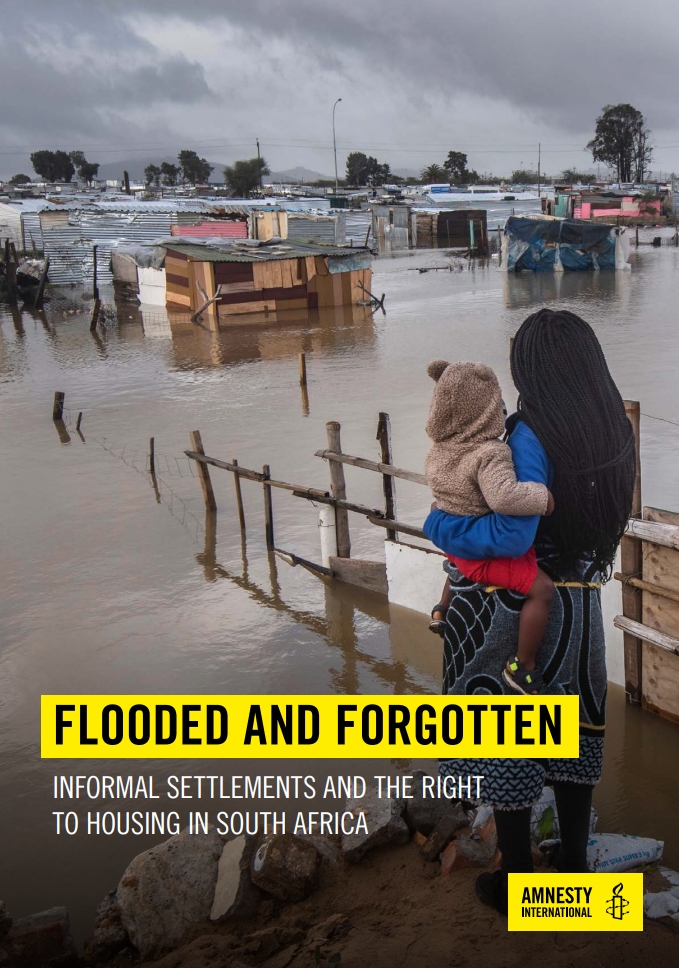Flooded and forgotten
Informal settlements and the right to housing in South Africa

This article highlights severe challenges faced by over five million people living in informal settlements and Temporary Relocation Areas (TRAs) in South Africa, particularly the frequent and damaging effects of flooding. Residents of these communities experience precarious living conditions marked by lack of secure tenure and inadequate access to essential services such as water, sanitation, waste collection, and electricity. Many informal settlements are located in high-risk areas like floodplains and riverbanks, making them highly vulnerable to flooding, waterlogging, and mudslides. The persistence of these conditions reflects the failure of successive governments to uphold the right to adequate housing, forcing marginalised populations to rely on informal settlements as a last resort. While TRAs are intended to be temporary solutions for displaced people, many have existed for decades without sufficient improvements. The article focuses on flooding impacts in Cape Town, eThekwini, and Johannesburg but notes that similar challenges affect communities nationwide. It situates these issues within the context of relevant laws, policies, and climate change considerations, analysing them through a human rights lens. Ultimately, the article calls attention to the obligations of all government levels and the international community to address these systemic failures and improve living conditions for vulnerable populations.


Comments